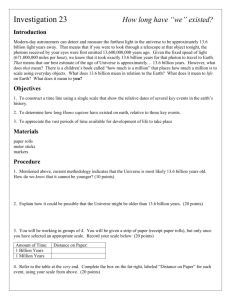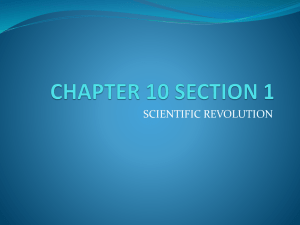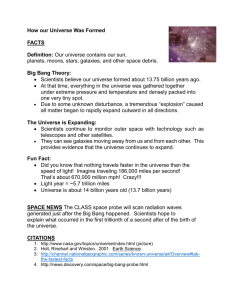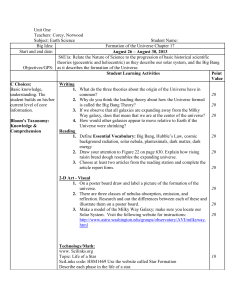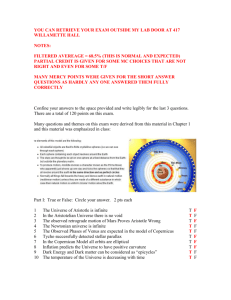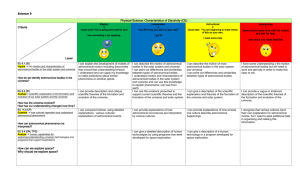Yr 9 Exploring the Universe Curric Overview
advertisement
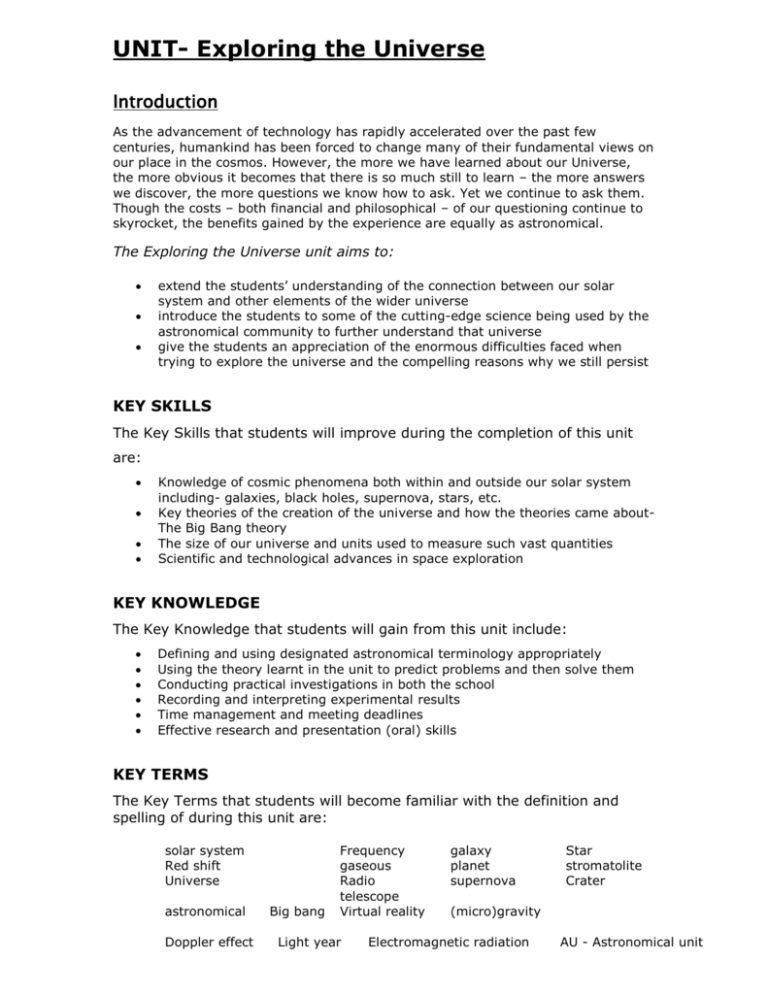
UNIT- Exploring the Universe Introduction As the advancement of technology has rapidly accelerated over the past few centuries, humankind has been forced to change many of their fundamental views on our place in the cosmos. However, the more we have learned about our Universe, the more obvious it becomes that there is so much still to learn – the more answers we discover, the more questions we know how to ask. Yet we continue to ask them. Though the costs – both financial and philosophical – of our questioning continue to skyrocket, the benefits gained by the experience are equally as astronomical. The Exploring the Universe unit aims to: extend the students’ understanding of the connection between our solar system and other elements of the wider universe introduce the students to some of the cutting-edge science being used by the astronomical community to further understand that universe give the students an appreciation of the enormous difficulties faced when trying to explore the universe and the compelling reasons why we still persist KEY SKILLS The Key Skills that students will improve during the completion of this unit are: Knowledge of cosmic phenomena both within and outside our solar system including- galaxies, black holes, supernova, stars, etc. Key theories of the creation of the universe and how the theories came aboutThe Big Bang theory The size of our universe and units used to measure such vast quantities Scientific and technological advances in space exploration KEY KNOWLEDGE The Key Knowledge that students will gain from this unit include: Defining and using designated astronomical terminology appropriately Using the theory learnt in the unit to predict problems and then solve them Conducting practical investigations in both the school Recording and interpreting experimental results Time management and meeting deadlines Effective research and presentation (oral) skills KEY TERMS The Key Terms that students will become familiar with the definition and spelling of during this unit are: solar system Red shift Universe astronomical Doppler effect Big bang Frequency gaseous Radio telescope Virtual reality Light year galaxy planet supernova Star stromatolite Crater (micro)gravity Electromagnetic radiation AU - Astronomical unit UNIT RESOURCES AVAILABLE “The size stars”- Youtube video Science Links 4 Chapter 5 Range of DVDs- Cosmic Collisions, Birth of the Universe, A Traveller’s Guide to the Planets POSSIBLE ASSESSMENT TASKS INCLUDE: 1. Oral presentation on a topic of student’s choice 2. Construction of engine-powered rockets- Evaluation/Analysis of success of design; 3. Practical Report- Calculation of height of rocket using inclinometers POSSIBLE PRACTICAL TASKS: Launching student made rockets Demonstration of the Expansion of the Universe- Science Links 4 Water Rockets- Science Dimensions 4





